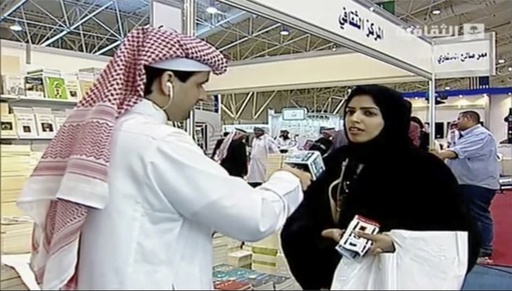
DUBAI, United Arab Emirates — A Saudi doctoral student studying in the UK has recently been released following a significant reduction of her lengthy prison sentence back home. Salma al-Shehab, a mother of two, faced a controversial 34-year sentence related to her social media activity, reflective of a broader trend of repression occurring in the kingdom under the de facto leadership of Crown Prince Mohammed bin Salman.
The London-based human rights organization ALQST announced al-Shehab’s release, highlighting that her sentence had been reduced to four years, with an additional four-year suspension. In a statement, they emphasized, “Her complete freedom must be granted, especially the right to travel for her studies.” Amnesty International has also confirmed her release, shedding light on the harsh conditions she faced during her incarceration.
According to Dana Ahmed, a Middle East researcher at Amnesty, al-Shehab endured nearly 300 days in extended solitary confinement, lacked legal representation, and faced terrorism charges, ultimately resulting in a lengthy prison sentence. “This was all due to her support for women’s rights and retweeting activists advocating for such causes,” Ahmed noted.
Several organizations, including the Middle East Democracy Center and Freedom House, expressed their support for al-Shehab’s release. Brian Tronic from Freedom House stated that her unjust punishment illustrates a fundamentally flawed judicial system in Saudi Arabia, where fairness in trials is questionable and allegations of abuse by police and prison officials are common.
Despite this development, Saudi authorities have not publicly acknowledged her release, nor did they respond to requests for comments. Al-Shehab was apprehended on January 15, 2021, while on a family vacation, just days before her planned return to the UK. As a member of Saudi Arabia’s marginalized Shiite Muslim minority, she and others in her community have historically faced discrimination in the predominantly Sunni nation.
Charges against al-Shehab included “disturbing public order” and “destabilizing the social fabric,” which stemmed solely from her Twitter activity. The official charges indicated that she retweeted dissident voices and allegedly spread misinformation online.
While Crown Prince Mohammed has introduced reforms such as allowing women to drive since 2018, his administration has also intensified repression against dissenters. U.S. intelligence implicates him in the 2018 killing of journalist Jamal Khashoggi, a claim that he continues to deny.
The crackdown on free speech has also affected other women, such as Nourah bint Saeed al-Qahtani, who was sentenced to 45 years in prison for her social media activity. Both women were tried in a specialized court designed for terrorism cases, but its use has expanded greatly in light of the government’s increased suppression of dissent. The United Nations’ Working Group on Arbitrary Detention categorized the detentions of both al-Shehab and al-Qahtani as arbitrary.

